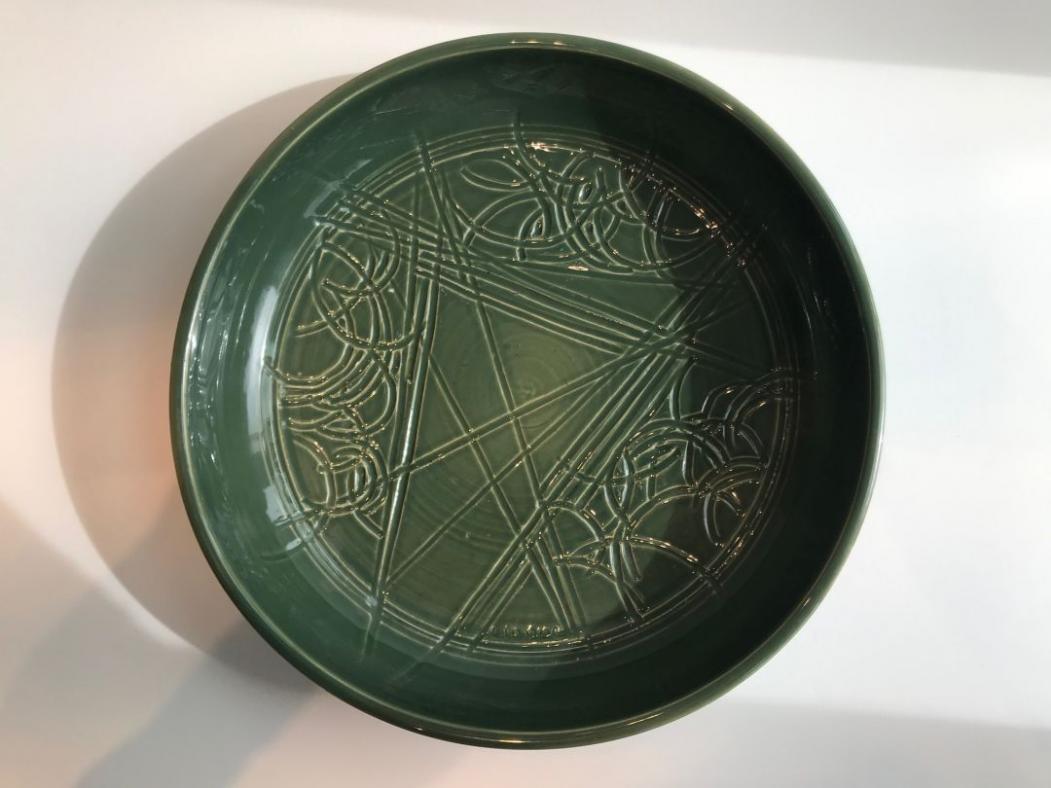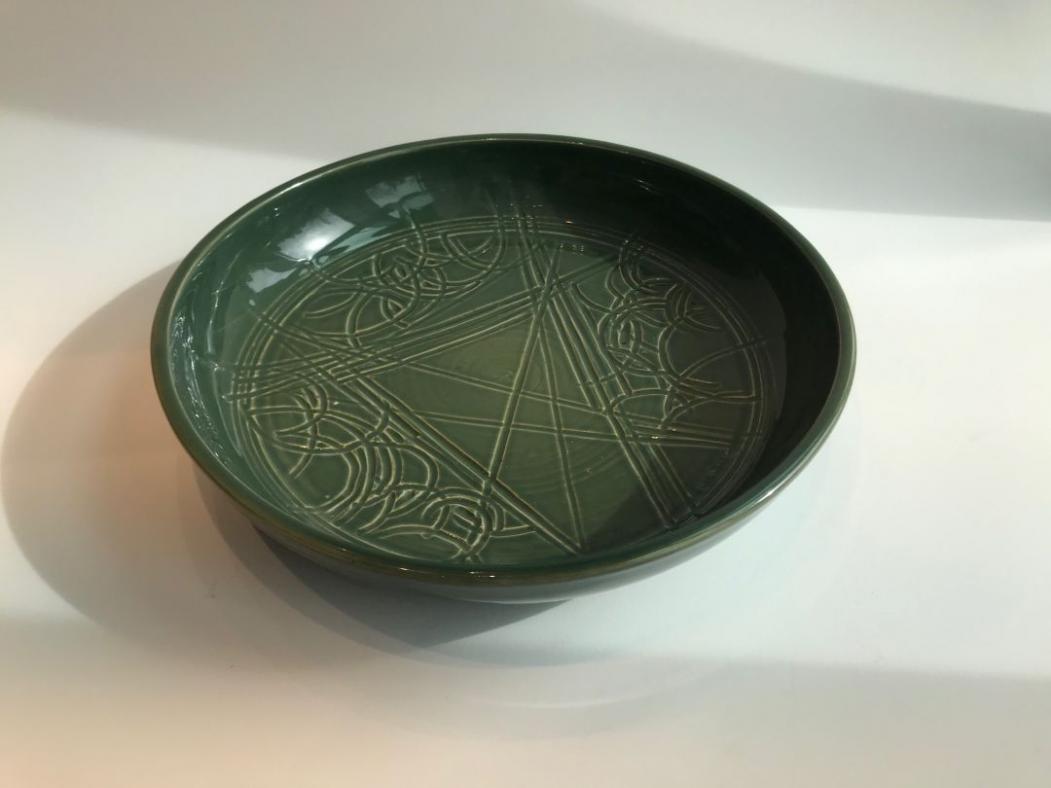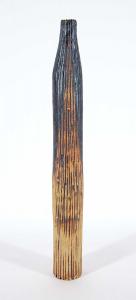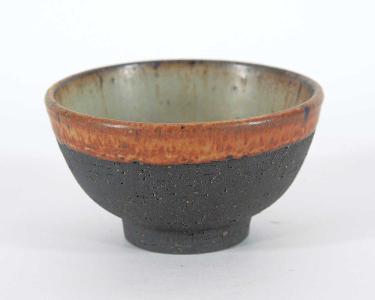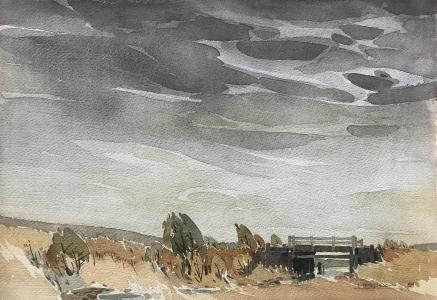Luke Lindoe - Bowl - green
- Bowl - green
- Ceramic
- 2.75 x 12 x 12 in
- Sold
- Private Collection
Signed on front
Luke Lindoe was born in 1913 in rural Alberta. His family life during childhood was unstable and inconsistent—he attended twenty-eight schools but did not complete high school.
As a young man with no prospects for anything else, Lindoe took up homesteading south of Fort St. James, British Columbia where he spent six months building a chicken house, a shelter for two cows and two horses, and a small cabin. In October 1933 he moved in, but with no money and little food for himself or his animals, by the spring, his animals were starving. He loaded everything he owned into a wagon, tied on the cows and drove into Fort St. James. After selling everything, he returned to Alberta.
He went to work with his father as an underground coal miner in Coleman, Alberta to put himself through art school. He studied in the art department at the Provincial Institute of Technology (which eventually evolved into the Southern Alberta Institute of Technology, and the Alberta College of Art, now the Alberta University of the Arts in Calgary) until 1940 and then move to Toronto for a year where he discovered ceramics at the Ontario College of Art and Design.
Returning to Alberta in 1941, Lindoe settled in Medicine Hat here he worked for Medicine Hat Potteries and then Redcliff Potteries. After a time working as a geological surveyor, Lindoe took on a teaching post at "The Tech" in Calgary where he developed the program in pottery and ceramics. Lindoe also taught at the Banff School of Art. When the school decided to acquire kilns for the ceramics department, rather than purchasing them, Lindoe was hired to teach a "kiln course" wherein he and his students built two kilns.
Lindoe moved back to Medicine Hat in 1957. With his expertise in locating clay, he was hired to work as director of research and mining at the I-XL brick factory. After he left I-XL in 1964, Lindoe established Plainsman Clays—a clay mining and production company that still exists today.
Over his career Luke Lindoe produced prolifically—both paintings and ceramics. He showed his work widely across North America, and exhibited in numerous international ceramics shows. His important public commissions include the cast concrete Virgin Mary and Christ Child on St. Mary’s Cathedral in Calgary and the Writing on Stone Wall panels for the facade of the Alberta Provincial Museum and Archives in Edmonton. His work can be found in the collections of the Alberta Foundation for the Arts, Edmonton, the Glenbow Museum in Calgary, the Musée national des beaux-arts du Québec, and Alberta House in London, England, amongst many others.
More Artwork from this Artist
Untitled Landscape
- Watercolour on Paper
- 11 x 15 in
- CAD $850.00
Untitled Landscape
- Oil on Board
- 17 x 20 in
- CAD $1800.00
Modelled Branch Pot
- Ceramic
- 19.75 x 2.5 x 2.5 in
- circa 1974
- CAD $1700.00
Untitled - Bowl (Black Brown)
- Ceramic
- 2.5 x 4.5 x 4.5 in
- CAD $525.00
Bridge
- Watercolour on Paper
- 14 x 20.5 in
- 1984
- CAD $1800.00
